#Florence pugh supremacy
Text
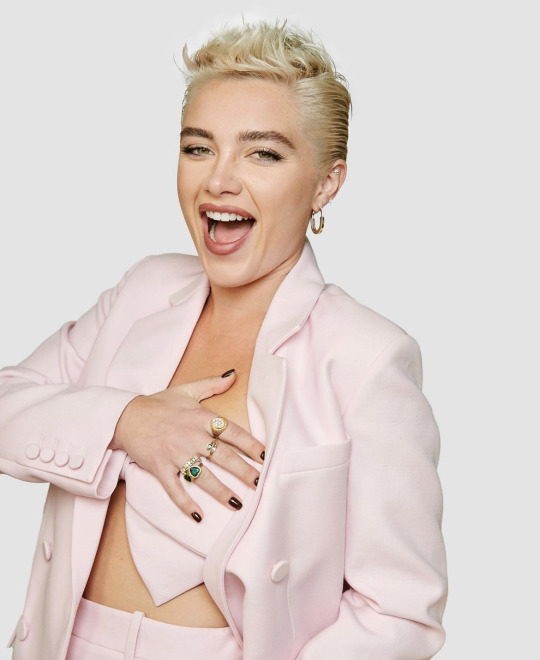
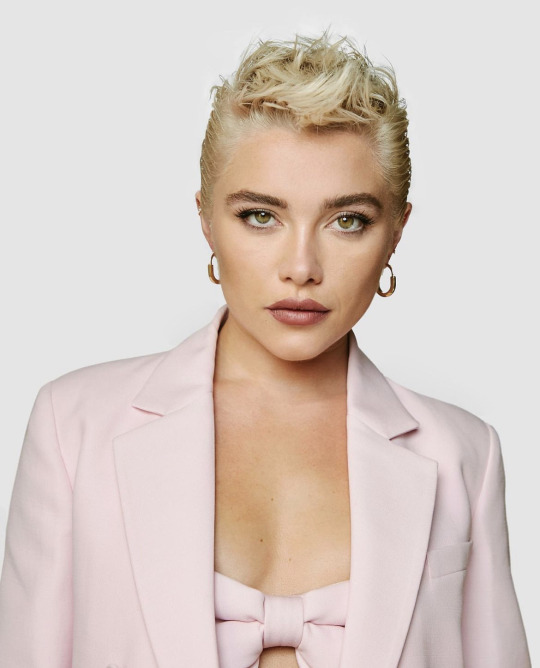
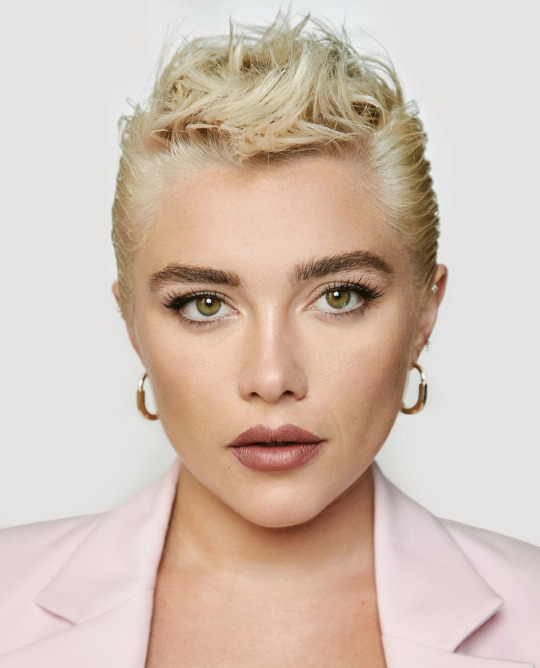
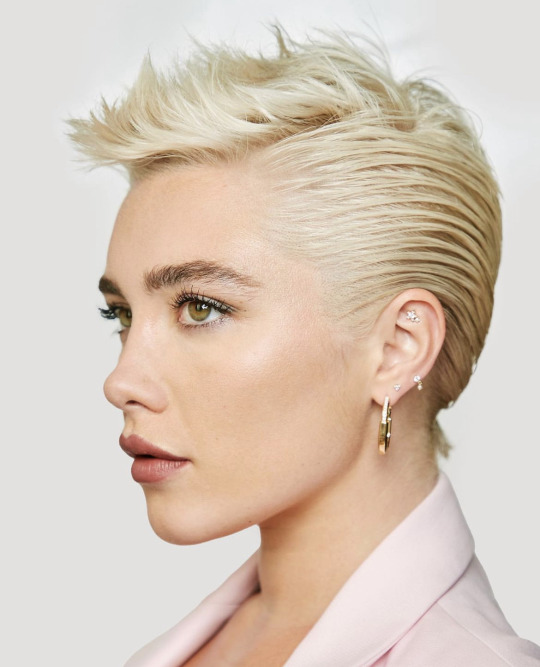
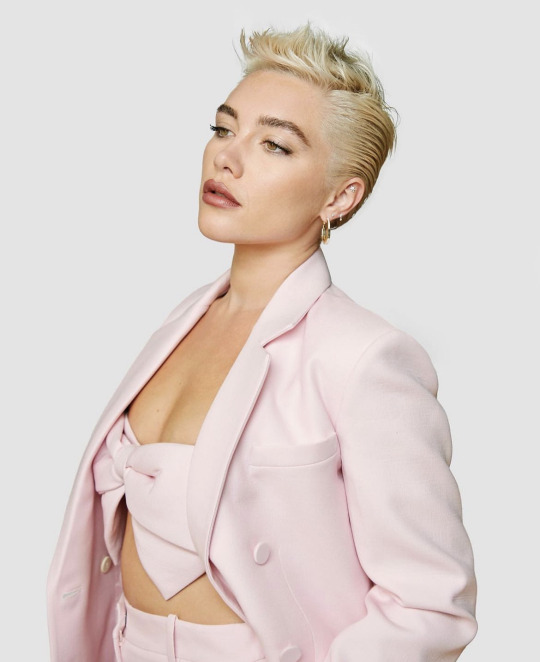
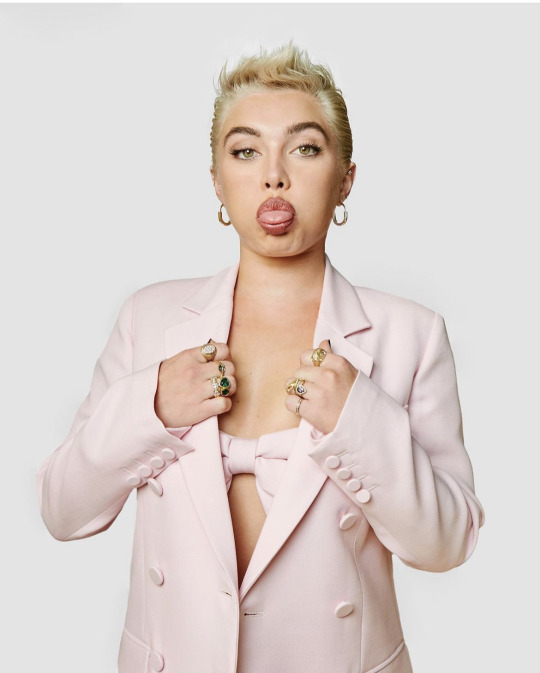
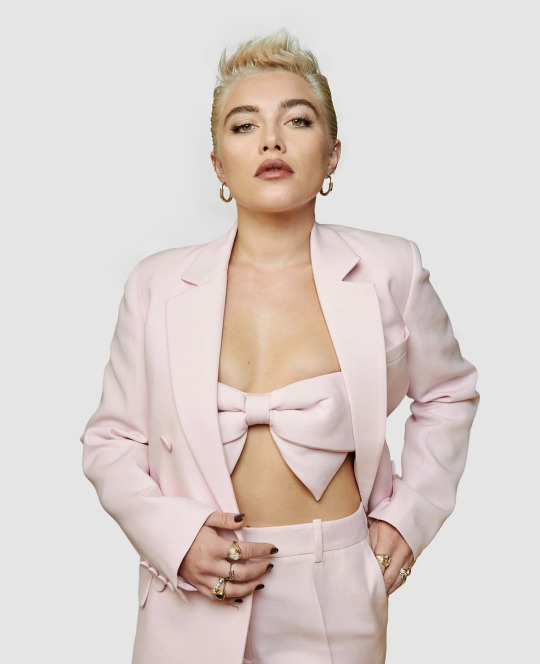

The way I would let this woman absolutely destroy my life…
#florence pugh#florencepugh#miss flo#Florence pugh is a goddess#Florence pugh simp#Florence pugh supremacy#yelena belova#she is the cutest#she is gorgeous#how is she so pretty#i’m not sorry#source: instagram
157 notes
·
View notes
Text
FLORENCE PUGH PLEASE HAVE MERCY🛐🛐🛐

234 notes
·
View notes
Text


she-
#florence pugh#florence pugh supremacy#on my knees so much they hurt#she looks so dom here actually#spit in my mouth and insult me plz miss flo
19 notes
·
View notes
Note

How you feel about Flo. Haha
That’s absolutely correct 😌
13 notes
·
View notes
Text
My babyyyyyy <3333
#harrystyles#harryshome#as it was#harry styles supremacy#hs3#harrys house#domrry#harry styles#harry styles smut#hs#harry styles tpwk#1d fandom#late night talking#don’t worry darling#venice film festival#olivia wilde#florence pugh#gemma chan#dwd#dwd movie#this is the cutest thing ever#babrry#crying#harry baby#baby boy
8 notes
·
View notes
Note
sags are the SUPERIOR sign
we have the Pope, Sarah Paulson, that guy from elite I can't remember the name of but my friend finds super hot, MILEY CYRUS, TAYLOR SWIFT
I would not date another sag tho
Give me all the leos, please
i am so sorry my dear but i’ll take alex turner, louis tomlinson, florence pugh, zayn malik, fka twigs, and dolly parton ANY DAY !! capricorn supremacy and ill die on this hill!
i love leo’s though i get it !! they’re so hot !!
3 notes
·
View notes
Text
🎧 New Podcast Episode: Midsommar

After a little unplanned hiatus, we're back with Part 2 of our Halloween crossover event! And, well, Carver and I really put the 'cult' in Popculty with this one, because we are talking Midsommar! (one film by a straight white guy we maybe actually liked??)
In this episode:
Final Girls
exploring grief through horror
good for her (?)
the dark history of dance marathons
Florence Pugh supremacy

Because Flo said, "It's the Year of Dani, bbs" and we mere mortal podcasters follow our May Queen! 🙌🌻👑
Listen now 🎧
Or read the interactive transcript below 👇
SJ: All right, Carver, the time has come-- Gonna talk about Midsommar. There's, like, no summary for this movie. [both laugh] Like, nothing happens! I don't know what to tell you listeners, if you haven't seen it. But basically, it's about Florence Pugh's character, Dani, who has just suffered an incredible loss. She has just lost her sister and her parents to a murder-suicide situation, that's, right off the bat, very intense, very triggering. I would say that's a big trigger warning. She is grieving that, and she has the shittiest boyfriend in the world. Oh my God, Christian suuuuuuuucks.
Carver: Mm-hmm. [laughs]
SJ: He just wants her to get over it and be fine. And he and his friends, who are all working on their masters project, want to go to Sweden to study this, basically, cult-- this commune in rural Sweden at the peak of summer, for the summer solstice. They have this whole ritual and all these customs that this group of college students wants to go and study, and Dani decides to tag along, and...weird shit ensues! [both laugh] That is Midsommar. Like I say, trigger warnings definitely for suicide...um, group sex with a girl of questionable age, I will say...
Carver: Mhm.
SJ: What else? Lots of suicide. Very unpleasant, very unsettling scenes of suicide. Can't emphasize that enough.
Carver: Yes.
SJ: Anything you wanted to add to that?
Carver: That's mostly it. Uh, I mean, also the ableism that we were talking about in Hereditary? Just go ahead and dial that up to eleven.
SJ: Oh, yeah. However, contrary to Hereditary, I really love this movie. I watched it for the first time in theaters and I was like, "Huh. That was interesting. What did I just watch?" It's like two and a half hours of a Swedish folk festival with very disturbing undercurrents. I went for Florence Pugh, which, I mean-- the Pugh in this movie is off the charts amazing. I basically went for her because I had seen her in her first movie, Lady Macbeth. Didn't know what I was getting into. Came away just being like, "I think I liked it ? But I didn't get it at all." And I recently rewatched it at the beginning of this year after I had suffered a loss. And I, for some reason found myself drawn to rewatch this movie. And I have to say it was so cathartic. It really felt like being held in my grief. So that's why I messaged you after I watched it, because I just felt like I finally understood the movie and I appreciated what it had done for me through that viewing experience. That's why I suggested it and why I kind of just, on a whim, was like, "Let's talk about Midsommar. I don't care if it's directed by a white guy!" Because it really moved me. They say what you come to a movie with often affects what you get out of the movie. And I very much had that experience with Midsommar. So that's sort of my context. It just clicked for me this time. What is your experience with this movie?
Carver: I also saw it in theaters right when it came out. I think I saw it if not opening day, I saw it opening week, because at the time, I was very impressed by Hereditary. I think now it's easy to see it as a drop in the bucket of these think-piece horror films. But at the time that it came out, it was really something that we weren't seeing a ton of. So I had been anticipating this movie. I had seen the trailers. I was ready for it. Um, that opening scene, as someone who has witnessed suicide attempts by loved ones, was so hard that I nearly left. At the scene where you see the sister, I was like, internally, 'Do I get up now and go?' And I think it is a testament to the movie that I did stay and that I was able to enjoy it, even if I was in a state of panic for most of it. Coming back to rewatch it, I didn't realize how adverse I was to rewatching it originally. I actually have been trying to watch this movie every night since you and I recorded last, and I was not able to make myself rewatch it until this morning.
SJ: Oh, really? Oh my god, you watched it this morning?
Carver: Yes.
SJ: Oh no, you didn't have to put yourself through that! I'm sorry!
Carver: I don't even think I realized it. It was just, 'Oh, you know, it's just not the time. It's not the time.' And rewatching it, knowing what happens did make it a lot easier. I think I also was able to notice a lot more in that scene, that really takes the story full circle.
SJ: Yes.
Carver: And I still really enjoy it. All of the elements of grief are there. Uh, the thing that gets to me most is what you were talking about earlier: Christian is such a bad boyfriend.
SJ: He's the worst! But not in a super obvious way, right? Not in the typical way we see abusive boyfriends, but he is so neglectful, does not care about what she's going through. He is surrounded by friends that are pretty shitty too, who are like, "Oh, just break up with her and find someone who actually likes sex." His dude bro friends are the worst, too. And they're just enabling him to be shittier.
Carver: They're also not the type of guys you would normally associate with that behavior. These are PhD students! They're educated, they're woke-- Well, some of them are. Mark is not.
SJ: Oh, yeah. Will Poulter's character. I mean, can he ever play a good guy? I don't think so. With that face?
Carver: He's going to play an idiot. That's the role he is given in this movie, is the idiot or the fool. And that is how I associate him, in film at least.
SJ: Oh, totally. He looks like the mean kid from Toy Story brought to life.
Carver: [laughs] Very Sid. I can see it.
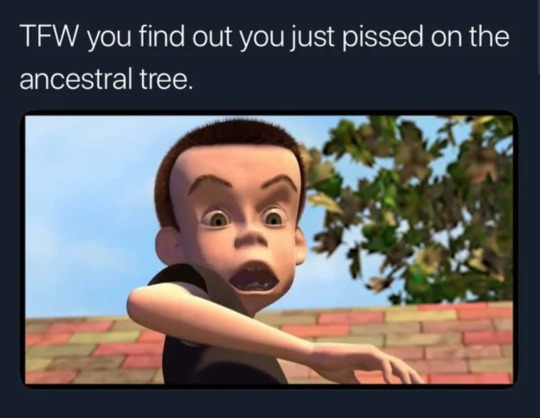
SJ: But yeah, so Christian isn't-- It's a more subtle version of abusive, toxic behavior than we're used to seeing. It's not in your face. It's not like he beats her. It's shittier in a much subtler way, in like a gaslighty way.
Carver: Mm-hmm. In a 'your feelings are your fault and my feelings are your fault...'
SJ: He constantly makes her feel like she's holding him back because she's having a panic attack, or because she's grieving, or because she's the sad girl at the party-- Ugh, that's the worst! I hate that.
Carver: I was discussing with my roommate earlier that I think the kindest thing he could have done would have been to break up with her. Because then at least she would have had that anger to fuel and push her forward in ways that I don't always think grief can do. I think the anger part of the grief cycle is one of the things that, for me at least, will pull me forward and keep the momentum of healing going, because you've got that fire. Whereas grief on its own just feels like something that's pulling you down. And I think you can feel that in Dani's character this whole time. What she needed was just a little bit of fire to get her going.
SJ: Heh. There's some foreshadowing for ya. [Carver chortles] For anyone who feels the same way we do about Christian, I highly recommend and will link in the shownotes, someone on Twitter made a supercut of the movie that's just Dani looking at Christian like he's the shittiest boyfriend in the world, set to Wii music. It's *amazing*. [both laugh] It's the only cut of this movie you really need to see, if you haven't seen it. That's a big thing right off the bat-- He is so unsupportive of her in her grief. And you can tell even in one of those opening scenes where she's just sobbing in his arms and he's just sort of awkwardly holding her, like he just wants this to be over. And then you contrast that to the group wailing scene, which we will talk about more, of course, because it's my favorite. But the contrast between the way those women hold her and the way that he barely holds her is striking.

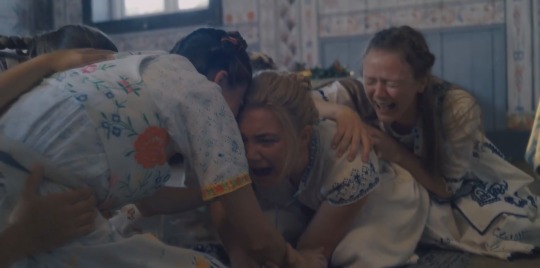
SJ: I wanted to ask you, because I was trying to think of another horror movie that takes place entirely during the day... Is this the first and only?
Carver: It is not the first. I think another-- as well as just a major influence that Ari Aster has said himself for this movie-- is the Wickerman, which is Folk Horror, this is Folk Horror... They have a lot of the same tropes. But I would say as far as movies that have been made recently, using it this way, where the sun is kind of symbolism-- the light is part of what is being foreshadowed in the opening panel... Because I will say something I noticed watching both of these movies is that Ari Aster loves to tell you everything that's going to happen so early, and then just still somehow surprise you with it at the end.
SJ: Oh, absolutely. I do really appreciate his foreshadowing. One of my favorite images of foreshadowing in film is from Midsommar, and it's that shot of Florence Pugh's character curled up on the bed in a fetal position, facing the wall. The camera makes a slow pan into the room, and above her is this giant painting of a girl with blonde hair, wearing a crown, opposite a large brown bear, holding its face and looking into its eyes. [laughs]
Carver: Mm-hmm.

SJ: If you know how this movie ends, you are both laughing and your jaw is, like, on the ground. It literally tells you how this movie is going to end, but then it just takes you on a ride to get there. It's the kind of movie that I think does benefit from having watched it once before, because then you can pick up on all those little clues he places throughout, which just enhances the viewing for me. Did you find that as well?
Carver: I did. So the first time I watched it, I remembered the bear from that painting. But on this watching, after the May Festival, when she witnesses the event with Christian and the naked women, when she is preparing herself to see that, the position she puts her body in as she leans over to look into the keyhole is the same position that little girl's body is when she looks into the bear's face in that painting.
SJ: [gasp] Right!
Carver: And her body language is so intentional when she makes that motion that it's just so clear to me that that was absolutely on purpose.

SJ: Oh, yeah. Again, Aster is very intentional with every shot of his films. I think you see that really clearly in this one. If anything, it's even more intricate and detailed than Hereditary. It simultaneously feels like basically we're just on Florence Pugh's face for two and a half hours, as she's experiencing whatever the fuck this is. So, in some ways, it feels almost like a documentary. But it also is a meticulously thought-out and staged film. There's so much symbolism, it's *so* precise in its imagery...
Carver: There are all those paintings on the walls in the room that they sleep in. And again, on this watching, I noticed that the mural above Christian's bed is the ritual that he takes part in later, with all of the women and the two in the middle.
SJ: Yeah, it is.
Carver: And I know all of that was hand-painted. All of those sets and things, hand painted. All of the clothes were embroidered. And actually, I was listening to something today-- They were trying to hire people from the area where they were shooting, so all of those clothes were designed and sewn by a Scandinavian woman. And it's very clear that those are so artfully designed and thoughtfully done.
SJ: It really comes through. Those sets do not feel like a typical Hollywood set. They feel like they were built by the people who lived there. There is just something very different about them. And the clothes do feel like they were hand-stitched, handmade, hand-dyed. I think it adds more of a natural feel. You don't feel like you're watching a Hollywood movie.
Carver: It's so polished, but it's also such a world that feels lived-in. There are these dramatic cuts, these swipes, there is this editing that is so hands-on, so purposeful, to bring you these emotions. Whereas the situations they're in, as extreme as they are, I think most people can relate to a time they've felt this way or that way. And I think anyone who's been through a bad breakup feels for Dani in this.
SJ: [stifling a laugh] A lot of people online are like, "Take your worst ex to this movie." [both laugh] I mean, I think we have to talk about the Florence Pugh of it all.
Carver: Oh, yeah.
SJ: Because she *carries this movie*. This would not have worked without her, I really, truly feel. Like, I'm trying to imagine any other actress of the same age in that role, and I just don't think it would have compelled me the way she compels me. I go off about her a little bit in my Black Widow episode-- We both love her, she's incredible, and she's such a naturalistic actor. She has no formal training, so she just kind of shows up and embodies the character, and she reacts the way that an actual person would. She's never thinking ahead to what the other actor's next line is going to be. She is so organic. I don't think there's any other style of acting that could have worked for this role. You really have to have that. And I can't think of anyone else like her that could have pulled that off. So I really just have to say, this is a masterclass in acting-- not even acting, it's like a masterclass in *being*-- from Florence Pugh. It is peak Frowny Face Florence Pugh. [Carver laughs] I think the regular cut is almost 3 hours long, and didn't have time, but I still want to watch the director's cut, which is like another half hour. This movie is ostensibly so long, and yet it goes by so quickly for me because I'm just mesmerized, really, by her and her performance. She just guides you through, as the viewer. This should be so boring, like, nothing happens! But I'm just riveted by her.
Carver: She has the exact opposite issue that we had with Charlie in Hereditary, where all of the emotions with that character were at arm's length, whereas there isn't a moment in this film where you aren't feeling what Dani is. And I mean, all of that has to do with The Florence Pout. [both laugh] But there are just so many instances that are great in this, even when she acts slightly out of character to what we know of her. Like when the group that came with Pele's friend have left, and she says, "You know, Simon left without Connie." And Christian's like, "Oh, that's so terrible, that's so terrible." And she's like, "I could see you doing something like that." [laughs] And I was like...
SJ: Yes! It's such a relatively tame line, but savage for her.
Carver: Oh, absolutely! And he takes it that way. She always has kid gloves on with him. Everything is her fault, every issue in the relationship she sees as her contribution, when she has this person who is effectively using those insecurities to manipulate her, when he doesn't know what he wants. They say in the beginning, "You need to get off the fence with this"--
SJ: Mhm.
Carver: And he refuses to.
SJ: He drags her along, and you see how it drags her down. Like you said, it would have been a relief if he would just fucking break up with her. But he won't even give her that, and it's so selfish of him, because he doesn't know what he wants, but he's going to hold onto her anyway. And from the opening scene of this movie to the closing, you just feel for her all the way. You feel exactly what she's feeling. It's such a testament to the remarkable performance she gives. Because like I said, I just don't see this movie working nearly as well with literally anyone else I can imagine in the role. I mean, even the most accomplished Oscar-winning actors-- it would be too untrue, too formulaic. It would be something we've already seen them do before. But she brings this freshness that really grounds the film. So, genuinely, I have to give her like 90% of the credit for this movie working for me.
Carver: Absolutely. Yes, there are so many wonderful things about this movie, all of the purposeful things that Ari Aster does. But that would all fall flat if you didn't have this person that was able to just grab your audience and push the emotion in their face. And I think she does that no matter what she's given. I do think the movie I was telling you about, Fighting with My Family is one of the silliest things I've seen her in...
SJ: Yeah, for sure. But she has the range, right?
Carver: My roommate and I were *crying* when she gets to go to Monday Night Raw! [both laughing] The culmination of that movie, when she is getting to be a professional wrestler-- Sobs in my living room! Just because we care so much about what happens to her. And again, it's because she is so good at what she does.
SJ: Absolutely. I've seen her in literally every genre and she just kills it in everything. And I can't remember the last time I saw someone that young do what she's doing. I mean, she's 26 years old, and in just the past five years or so, she has created a body of work on film-- and in television-- that tops most actors who have been working for decades. She just elevates everything that she's in. And even beyond her talent, I'm just really impressed by how discerning she is with the projects she does and how many women directors she's already worked with, in her very short career. That's actually depressingly rare for actors of any gender to have that awareness of gender equity behind the camera. [sigh] I could talk about Florence Pugh all day. How much time you got? [both laugh]
Carver: I know this is sort of a controversial topic around this movie... Do you consider this to be a Good for Her film?
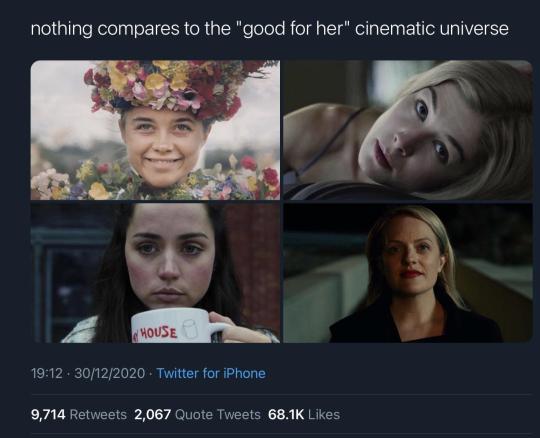
SJ: Oh, my gosh, [nervous chuckle] That is so complicated... So, yeah, when everyone was watching this movie, I would say like 70% of the takes online were a variation of the Good for Her meme, right? Viewing this as a female empowerment film. Um... [laughs] Okay. That, to me, is-- Are you familiar with the Broke, Woke, Bespoke meme?
Carver: Somewhat...?
SJ: It has variations. Like, Galaxy Brain is another variation.
Carver: Okay.
SJ: Basically, you have levels of takes, and you start with your most basic take, and then you sort of elevate to the 'Galaxy Brain' or 'Bespoke' take. If I'm applying that to this movie, the reactions that I've seen are, like, 'Broke'-- which is "Good for Her"-- and that's just your base-level, knee-jerk sort of response, not thinking about it too deeply, kind of thing. And sure-- Is it satisfying to watch her burn her shitty ex-boyfriend alive in a bear costume? Yes. [Carver chuckles] Not gonna lie. And the way that she's literally crowned a queen, and it's like the movie is saying, "She was a queen all along and you should have treated her like one, asshole." There's definitely a satisfying element to the end. But, uh, does anyone really believe that Dani is in a healthy place, physically or emotionally, by the end of the movie? You know, to me, that ending is symbolic, the fire is symbolic. This movie is not actually suggesting or approving that you burn your ex alive as a legitimate form of closure. I understand the Good for Her take, but let's think a little deeper about it.
Carver: Yeah.
SJ: I might agree in passing, I might retweet a Good for Her meme. But no, if I'm thinking about it critically, not at all. She's achieved freedom in some sense, but I don't think the movie is suggesting that it's healthy or actually good for her in any way. I think she's just traded one form of abuse for another. And I think a lot of people miss that.
Carver: Yeah.
SJ: The other take that people have-- it's like a more woke take, this would be the next level-- is that, 'Oh, this is a movie that's condoning cults! This is cult propaganda. Wake up, sheeple!' You know? But I think the way the cult is portrayed is kind of a warning to us. They have all this rhetoric that sounds really good, but then it's all proven to be empty or false. So I prefer the Bespoke take, which is viewing this movie as like a PSA for how cults prey upon emotionally, or in other ways, vulnerable people. That's exactly where we find Dani in the beginning of this movie. She is prime cult bait. You know, so I don't see it as this healthy evolution for her. I see it as an evolution of sorts-- healthier in some ways, but... I mean, how do you feel about the end message?
Carver: I think a Good for Her message is complicated for me, because we've talked a bit about how much we hate Christian, he's a terrible boyfriend. Also, if you think critically about what has happened to him-- how he is given a drug he doesn't really want to take and put in a position that he doesn't necessarily want to be in and doesn't have the faculty to fully consent to, and then he's burnt alive for it-- I don't love that being how one of the first major depictions of a male survivor is shown.
SJ: Sure.
Carver: Also, I, uh, think it's easy to see it as a Good for Her if you think of it in the context of the beginning of the film to when the credits roll. But the moment you think of what this character is going to go through when the credits start to roll, when the movie is over...
SJ: Mhm...
Carver: How does she get home? They have said that they bring in new people to expand their gene pool. And so, at least in my mind, forced impregnation is in the future for Dani. I think the real terror for that character starts when the movie ends.
SJ: I would agree. And, you know, that's a pretty unsettling place to come away from. So I think a lot of people just sort of gloss over it and they'd rather see the female empowerment piece of it, but it's true-- Let's think about this. Practically speaking, what would the next scene be in that movie, if it didn't cut to black? I mean... it's not gonna be all sunshine and roses forever.
Carver: Yeah.
SJ: Florence Pugh was on a recent episode of the Off Menu podcast, and she shared some really interesting insights about Dani and the experience of playing her-- a lot of which I think echo our thoughts.
Male host: What do you think happens to her (Dani)?
Florence Pugh: So, she's had a psychotic break. That's what's happened. When she sees her boyfriend having, um, that orgy in the temple, I think that's like one of the last things that she can probably deal with. And I think through the mushroom trip and the this trip and the that trip... I think when everything starts-- for example, when she's on the throne with her flower dress and she's given the choice to either choose her boyfriend or the other sacrifice-- I always took it as like, she was kind of gone by that point, after all the pampering and the weirdness and the oddities of what was happening. So when she looks at him, I never thought she looked at him to kill him. I thought it was more of like, she was in a different place. She was in a different-- She wasn't her anymore. And she almost looks at him as if she's getting that recognition. She knows that it's someone she loves, and she knows that it's someone that's hurt her. So that whole zoom-in, for me, was her processing deep, deep from wherever it is that she's got lost to, that that is someone who has hurt her. And then it snaps, and then he's been chosen. So I always thought that she survived. I don't think she's probably ever going to come back, because to come back from a psychotic break, you have to have deep, deep treatment and work that obviously those people don't have--
Male Host: Yeah, they're not offering that.
Florence Pugh: No, they're not offering that. But I do think that they care for her, and I do think she's-- in a weird, twisted, horrible way-- she's in a place that people actually want her to be there. And I do think she will be getting respect and love, in a weird way, there. I don't think she's ever coming back from this break... It's funny, when I did it, I was so, um, wrapped up in her-- and I've never had this ever before with any of my characters-- I was so wrapped up in her that when I was making the movie, there were so many places that I had to go to, because I'd never played someone who was in that much pain before. And I would put myself in really shit situations that other actors maybe don't need to. do. But I would just be imagining the worst things... Because each day the content would be getting weirder and harder to do, I was putting things in my head that were just getting worse and more bleak. And I think by the end, I had, uh, probably most definitely abused my own self in order to get that performance. And when I left the shoot, they still had three days left to shoot, because I was off to Boston, to go and shoot Little Women literally straight away...
Male Host: [laughs increduously]
Florence Pugh: [with a weak laugh] I know. And I remember when I left, I said goodbye to everyone. And, um... when I was in the plane, I looked down-- and by that point, I'd traveled so much over the weekends to go and do press for Little Drummer Girl that I knew exactly where the field was when I was in the plane, because I'd follow the road out-- And I remember looking down and feeling immense guilt. Like, I felt so guilty, because I felt like I'd left her in that field, in that state.
Male Host: Wow.
Florence Pugh: And it was so weird. I've never had that before. I've always thought that all my characters, once I've left them, I'm like, "Yeah, but they'd be fine in the next situation. They know how to handle themselves." And this one I was like, "I've..." And obviously that's probably a psychological thing, where I felt immense guilt of what I'd put myself through, of course. But I definitely felt like I'd left her there in that field to be abused, to be... um, not to-- She can't fend for herself. And it was like I'd created this person, and then I'd just [snaps fingers] left her when I had to go and do another movie.
---
SJ: I would love to talk about race in this movie, because we sort of touched on it in our Hereditary episode... In the pro column, I do appreciate that this movie is using and appropriating the *whitest* possible culture, which, to me, is so refreshing, after the history of horror movies in particular using/co-opting/bastardizing things like indigenous lore and mythology. I mean, almost every movie about a haunted house or a haunted cemetery is based on, 'Oh, it's built near or on an Indian burial ground,' right?
Carver: Yeah.
SJ: So I'm almost okay with this movie being almost entirely white, because it's critiquing a very white culture, and it's not trying to appropriate a non-white culture, like we've seen in the past. Having said that, I think the casting of the few characters of color in this... I think it's a little problematic. What are you going to say?
Carver: Um, I think when you think of, again, the purpose this cult has, of bringing new people in, as they say, to extend the breeding pool, the genetic pool, and when you look around, it is still all white people. You know that they are bringing people of color here, but they are not using them for that. And so, it's hard to ignore that-- I'm going to say that they're a white supremacist cult.
SJ: I would agree. There is definitely a strong element of white purity, because who do they choose to mate with their girl? It's Christian, a white, redhead guy. Like, could not be whiter. The only people of color in this movie are the British couple, who they just kill. They are outsiders who were brought in, but they just use them basically as fertilizer. They don't use them for procreation. So I'm like, absolutely. This is, like, a white purity thing. To me, that works because I don't think the movie is condoning what this cult is doing at all. So we're like, 'okay, yeah, they're kind of an evil cult.' If we were meant to embrace the cult, or if people come away from this movie thinking, 'Actually, they have some good ideas,' that's problematic, because when we scratch the surface, we know that's not true. But I think as long as you're looking at the whole picture, looking at everything this cult is doing, you have a very clear understanding that they're not this utopia that they claim to be. And at the basis of it is this blood purity.
Carver: I do think the thought of bringing Connie and Simon is purposeful on the character of Ingemar. When they're first introduced, he says, "You know, Connie and I went on a date, and they started dating right after." And Connie is like, "We went on *a* date that I didn't *know* was a date." And he's like, "Anyway! And now they're engaged, and I brought them here."
SJ: Ohh, so you think that was payback, for Ingemar?
Carver: I think so. I think it relieved some of his own guilty conscience to be bringing these people, because he saw a slight in some way. And in the end, he volunteers to be one of the sacrifices and burns up there with them.
SJ: Yeah. I hadn't put that together, but I think you're right. The only main character of color is *Josh*, who-- okay, based on that name, I'm really going to assume that Ari Aster wrote the script with all white people, and at the very last minute, one of the producers was like, "You really should have a person of color." So he cast William Jackson Harper at the last minute, just so that people couldn't make the same critique of Midsommar that they do of Hereditary. [laughs] Um, but I have to say, I don't think the colorblind casting in that role works, because I don't think that a Black man, particularly an African American, would go to this other culture and pick it apart the way his white colleagues are doing. That seems like a very white colonialist mentality to have, and you're sort of drag-and-dropping that onto a Black character. That just does not equate to me, because I feel like, with that historical memory, being the descendant of people who were enslaved and who have had their culture appropriated by white people, I don't see how he would then turn around and exploit this culture the way his fellow white students were doing.
Carver: Exploit and also demand access to. Anytime a boundary is set about, "You can go this far, but no further," he is the most anxious to step over that line.
SJ: It's true.
Carver: And I don't think that someone who would have the cultural competence that that character would have, realistically, would do that.
SJ: Totally. Also, his name is Josh. [laughs] I'm sorry, but, like, whitest name ever. I really feel like that character was, at the last minute, cast as a Black person, just to kind of check that diversity box. Doesn't it read that way to you? Because I don't think anything about the character, as is written in the script, has any Black cultural identity or anything. I mean, he acts *just* like his white colleagues, and I just feel like that's Ari Aster doing some last-minute corrections, you know? [laughs]
Carver: I think it's the same as he said how he writes women, is he just puts himself into them. And I think that's very clear with Josh's character. Astor has no understanding of what it would be like to be a person of color, so he's like, "I'll just write you as if you were me!"
SJ: Yep. That's how it reads.
Carver: As much as I love to see that actor in any role-- I'm so happy to see him in anything. I think he also has a great amount of range. I think taking this role was a very smart thing for him to do after a show like The Good Place, because he is a *completely* different character.
SJ: Yes, he is.
Carver: I think he has an eye for creative media. I know if I see him on the cast, there is going to be something interesting about whatever's being made there. So, as much as I want to critique that character, I am always happy to see him working.
SJ: Always happy to see Chidi! Yep. [both laugh]
Things I like about this movie? Equal opportunity nudity-- That's rare! We get just as much schlong as we do full-frontal naked ladies. I also appreciate that there is a sense of humor running throughout this movie. A lot of people have this idea of it being a very self-serious sort of douer movie. But there are scenes that make me *laugh out loud*. The foreshadowing painting is one, but also the end scene-- [Carver chortles] where she's in this giant flower dress, running and stumbling and tripping on it. And she's crying and sobbing and puking-- I laugh so hard. [laughing] And I think it's meant to be funny. Ari Aster has said in interviews that he intended for a lot of this to be, like, absurd. He said one of the funniest things to him is master's students arguing over their theses. So I think there is an intentional beat of humor running throughout that I appreciate.
But also, like I mentioned, I think this is a really-- this and Hereditary, in a different way-- but this movie in particular I think is such a good portrayal of the stages of grief. Particularly the loneliness of grief, you know, how alone Dani feels in mourning, when everyone around her just wants her to get over it and be fine. Of course, the film presents this alternative to that in the form of the cult, which demonstrates this idea of collective feeling and radical empathy. Whenever one member feels pain-- or pleasure for that matter-- they all experience it together as if it was their own. That's a very appealing thing for Dani in the place she's at-- Again, a very vulnerable person, the cult is appealing to what she wants most... And I have to say, the wailing scene, where she's finally letting it all out-- the rage and the grief and the betrayal-- everything that she's feeling, on the floor, on her hands and knees, just *sobbing*, snot and tears dripping down her face. And every other woman in that cult is there on the floor with her, sobbing and screaming together in this one, moving mass...
youtube
SJ: It's such a powerful scene, I have to say. Both times I watched it, I felt it viscerally, and it was really cathartic. Also, just-- can you imagine filming that scene?? [both laugh] The lack of self consciousness you would have to have, because it's just so raw. I think for Dani it is the turning point in the film, because for the first time she's being held by people in the way that she needs to be held-- in the way that Christian couldn't, in the way that she probably didn't feel held by her family. Yeah, I think that's really her turning point. And it's, to me, probably the most powerful scene.
Carver: I absolutely agree with you there. The line I think of most often is Pele asking, "Do you feel held by him?" And I do think that is a question that in relationships we aren't told to ask. And so much of the success of things like that comes down to something so simple: 'Do you feel held? Do you feel that there is someone there to catch you when you need caught?' And I think that is the nail in the coffin of many relationships, is when you realize that you don't.
SJ: That was a line that stuck out to me, too. She sort of gets her answer in that scene: 'No, I have not felt held, that's why I need this.' And I think that's when she, consciously or unconsciously, makes the decision to stay with these people, for at least a period of time. I think a lot of it has to do with the way that American culture likes to isolate people who are grieving. We don't talk about death, and we certainly don't talk about suicide. So she's dealing with all of this on her own. And I really think the cult is speaking to the weakness in the way that Western culture deals with(/doesn't talk about) these things like death and suicide and grief. They are filling that need for her.
Carver: Yeah, they're showing her another way. You know, I think before, she couldn't imagine a world where she really felt held in that way. I think Dani was put in the position of being the one holding. And so, it really is the first time that she feels that other people are even just relating to her, besides Pele who is the first person to really even say, "Sorry for your loss."
SJ: Yeah. We talked in our mental health series-- my guest Megan, who's a social worker, was talking-- about how this really is a shortcoming of Western culture. It's this individualistic, sort of 'pull yourself up by your bootstraps' mentality that makes us feel so alone when we're feeling any type of extreme emotion. We're taught to just figure it out on our own, deal with it ourselves, carry our own water. And the cult, to me, represents more of, like, the Eastern cultural mentality, which is more of a collective, and 'we do things together.' This is something that came up in another episode we did on The Farewell, which is about how no one dies alone, no one grieves alone, we're all in this together. It's about the community, it's about the family unit, it's never about the individual person. So I think that's something we can think about and take as a critique from this movie about our individualistic American culture, which wants to deny these things and make people feel so isolated when they're in the worst emotional places in their lives.
Carver: We're a society that sees asking for help as a shortcoming. The fact that you need help in any way means that you're less than the people who don't ask for it. I mean, in our culture, even mental health is still so stigmatized that going to see a therapist is barely a part of the norm. And most people who need therapy won't seek it.
SJ: Right. That was a big impetus for doing the mental health series. So, oddly enough, I think this movie sort of piggybacks nicely on some of those themes.
Carver: Absolutely.
SJ: For me, another standout scene, other than the wailing, I think my other favorite scene is [chuckling] the dance-off?
Carver: Mhm!
youtube
SJ: 'Dance 'til you physically collapse' has got to be one of the most underused horror scenarios. But it got me thinking about the history of dance marathons, which is actually kind of dark and fucked up. The origin in the U.S.? It began in the Great Depression, as a means of survival for people who were otherwise literally starving. Atlas Obscura had a really interesting article on it recently, and they wrote: "In the thick of the Great Depression, the perverse entertainment racket of America's dance marathon craze was, to some, a survival strategy. Because dancing in a marathon didn't just mean the possibility of a cash prize, it meant being fed and sheltered for the duration of the contest." So I thought that was an interesting, equally dark parallel for what Dani is doing here, which is also probably dancing for her life, whether she realizes it or not at the time. Going back much further in a more global context, you also had these medieval dancing plagues. People would just start dancing, and they'd dance for days and days and days. And at the time, people thought it was demonic possession. Now they say that it was probably ergotism, it was a type of food poisoning, and basically these people were tripping--
Carver: Mhm. Bad bread.
SJ: --which, side note, was also what they think caused the Salem witch hysteria.
Carver: Mhm!
SJ: Atlas Obscura also does a podcast, and they had just done this episode that I had listened to right before I re-watched Midsommar, about the Harga, which is what this dance thing is...
Atlas Obscura female host: I'm standing at the top of a mountain in northern Sweden, and I'm looking at a ring in the rock. It's polished down into the stone almost like hundreds of feet did hundreds of laps around this circle and pounded the ground until it became smooth. According to a famous Swedish legend, that is exactly what happened. A group of doomed teenagers followed the devil to the top of this mountain. And as they danced circle after circle and wore their bones down against the rock, the devil sat in a nearby tree, watching them dance to their deaths, playing his violin... [creepy violin music]
SJ: So, that dance scene is based on this real legend, and I thought it was interesting the way they incorporated it. Those are just some of the contextual things I was thinking of when I watched this movie the second time around. The first time I watched it, I was like, "Oh, they're dancing! This is fun. It's all bright and cheery." But they're drugged! It is sort of like an LSD haze for Dani. Then you start thinking, 'Okay, what if she wins? What does she actually win? What does that entail?' And you just get this sinking feeling of like, 'I don't think winning this is going to be a good thing for her.' And of course, as we've said, it probably isn't.
Carver: To my viewing, it's the moment that really solidifies Dani's relationship with the cult. There are moments in that dance where she looks out at Christian and is afraid. And then she looks at the girl who pulled her into the dance and sees the joy that she's experiencing, and mirrors that feeling the same way that later they will all mirror her feeling. So I think that dance is her really crossing cultures and becoming one of them. That may be cemented later on, but I don't think that she would have done that willingly if it weren't for the way that she felt so included with those women, in a way that she was never included with the people who were already in her life.
SJ: Also, it's just like, really nice to see her smile for the first time in the entire fucking movie! [laughs]
Carver: Truly a relief!
SJ: Honestly. I was just so glad to see a smile on her face. For once, she looked like she was enjoying herself, for at least part of it-- even though she's drugged out of her mind. [laughs] But it is like the only moment of joy in this movie, for which she has just been bereft.
Carver: One other thing that I noticed, sort of tying these two films together-- which I don't always like to do. I personally like that Ari Aster made a movie and then wasn't forced to make a franchise. Which is, I feel like a lot of what's happening now, and there's a lot of pressure for people to find the connection and to put these movies in the same world. I think they're absolutely spiritual siblings--
SJ: Sure.
Carver: --but I don't think that they should be read as happening simultaneously. It is a different world that Hereditary and Midsommar take place in. But they do both focus around this theme of holding in and releasing grief, and I think that is an interesting place to draw fear from. I don't think it is usually grief we are focusing on when we're talking about our fears, when grief is such a huge part of it. I feel like anxiety is the culmination of fear and grief. And it's something that our generation-- and of course, generations before us-- were very vocal about the way that we experience that.
SJ: I have to say, I really love the end scene. I felt like such a cathartic culmination of everything, and the way that it's constructed is so effective. I mentioned the scene where the building with her boyfriend is up in flames in the background, and in the foreground, she's stumbling over this dress, and crying and puking. And I have to laugh, but that is like the final purging for her of those emotions that she's been carrying. Because then she looks around and sees everyone around her-- all the people in the cult-- are also screaming and crying and puking and wailing. And you can see the moment the burden of feeling like she has to carry all of that by herself is lifted. You watch the anguish on her face morphing into relief and a kind of joy, and you see her arrive finally at a sense of peace. The burning building crumbles into the flames, superimposed over a close-up of her face, going through this transformation. And she smiles because she's been released of her grief, of her shitty boyfriend who was never there for her, maybe even of the anxiety and the burden of having a sister who is suicidal and having to constantly worry-- There's some relief there. And there's a release of being constrained by American societal pressures. She has, for better and worse, a new family of sorts that will give her what she desperately needs, which is to be seen and held with no constraints.
youtube
And I felt that sense of catharsis with my own grief as well. Watching it, I felt like I had gone through the wringer with her and then kind of come out the other side, almost being exorcised of my grief. With that final scene, I just felt like I could [exhales] let it go, in a way. And that was really helpful for me. So, going into this movie in that profound state of grief allowed me to have that experience and view it through that lens. Again, it comes down to what you're going into this movie-- any movie-- with, but for me, it was like a grief doula, sort of guiding me through the stages. Now, obviously, it's not a perfect happy ending for her - We know this. But that was the experience I had, and it was very helpful for me. So I would recommend this movie to people who are grieving, which I think a lot of people are, as we're in this now third year of the pandemic.
If there's a moral to this story... I think there are a couple things, but one that really jumped out to me was the importance of balance in all things. Throughout the film, we're shown examples of how too much of even a seemingly good thing has negative consequences, right? Like even the constant sunlight, which, sunshine is supposed to be good and symbolize happiness and clear skies. But the *constant* sunlight, the heavy saturation of light throughout this movie, becomes disorienting and wrong, when there's no distinction between night and day. Similarly, too much empathy and sharing-- as we see with the cult having various communal experiences-- at a certain point, leads to the absence of personal boundaries and even consent.
Carver: Yeah.
SJ: Oh, we got to talk briefly about the Oracle character, because we were talking about ableism in Hereditary... But even the Oracle character-- if you're going to give that some meaning (because I really hate that that's a character, it doesn't need to exist)-- if you are to ascribe some meaning to that, you could sort of read it as, like, 'too much blood purity leads to physical disfigurement.'
Carver: That particular character is so secondary that they could have very easily been removed from the story and had basically no effect. I think it is there to trigger the Western cultural taboo of incest, to expose these Americans to something that is going to make them uncomfortable, that they see as morally wrong. And then also the fact that they are doing it purposefully, creating this person in a way that just seems manipulative, creating someone to be used. And they are the only person kept separate from everyone else. They live alone, in the religious house, but they are very clearly created to be kept apart from everyone else. Even if they're put on a pedestal and being told that they're holy, they're still not fully a part of the cult, which is the thing that we feel for Dani. Like, the compelling part of this movie is almost wanting Dani to join this cult, to be a part of something, and then they have created a person to keep away from them.
SJ: It's a striking contrast, and I agree - This character could have been completely written out of or edited out of the movie, and it would change pretty much nothing. I think there's like a total of 5 seconds of actual screen time for this character, at least in the theatrical cut. They're talked about in maybe two scenes, but it just seems so unnecessary. I guess if you're really [exasperated sigh] going deep on it, you could say the othering of this character is another warning sign against this cult being as inclusive as they say. But, uh, Occam's razor would say it's just Ari Aster's ableism showing up again.
Carver: Yeah. [chuckles]
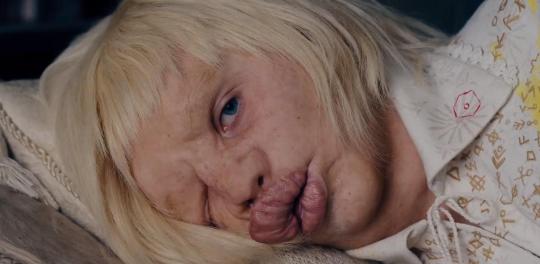
SJ: It feels like the very old archetype of 'good equals beautiful and bad equals ugly.' It's just so regressive and uninteresting that I wish he hadn't included it. What is the point of this character?!
Carver: It really adds little to nothing to the film. It seems sort of like you were saying earlier, used for the same purpose of showing elderly women nude: It's a shock factor, it's to make the most common denominator feel some amount of disgust. It doesn't really feel like it fits even the themes of this movie.
SJ: I agree. And I mean, that's definitely one of the things I dislike. I also don't like that this movie-- *again*-- has, like, zero women involved at any level of production. Since it was filmed in Sweden, they just used a lot of Nordic white dudes... And Aster's next movie is equally white. He's just going to keep doing the same thing, I don't think he's ever going to learn. But, we shall see, Ari.
Carver: We'll see! [chuckles]
SJ: I did want to ask you, do you see Dani as a type of Final Girl? And if so, how does she fit into that canon?
Carver: I think, with the loosest parameters of Final Girl-- which I'm comfortable using here-- Dani is a Final Girl. She starts the movie with the same obstacles against her as everyone else, and because of something inherently different about her, she's able to make it through (at least the film). And the thing that Dani has that's different is *emotional complexity*--
SJ: [laughs] Right. It's true! That is her superpower.
Carver: --And, uh, that's not always what we're looking for in a Final Girl, but I do think it makes her just as tough. The things we expect to see them going through, she, in a way, does. She's put against these insurmountable odds, and just because they look way different than what we're used to doesn't exclude her from being part of that canon.
SJ: Yeah. Isn't the Final Girl also supposed to be the virgin, usually?
Carver: Yes. I'd say that trope gets subverted more and more since Scream came out...
SJ: Since people became aware that the Final Girl was a trope [laughs]. Then they started trying to subvert it.
Carver: Yeah.
SJ: I think there's an element of that to her character, because a comment that one of the douchey guys makes is that she doesn't want to have sex with Christian. That sort of made me think of your classic Final Girl-- as like, not sexual, right? Because the girl who has sex dies first, in your classic horror movie.
Carver: Yes. And I think-- if we're getting into Final Girls-- a lot of the basis of the idea of the Final Girl is because those slasher movies were made during Reaganomics, during an extreme time of demonizing women owning their sexuality. And so, the villain in many of those slasher stories is...Reaganomics. It's the oppressive force coming after people trying to live their lives. And the farther we get from that, the easier it is to subvert those notions.
SJ: Totally. And it's kind of interesting to see versions of Final Girls in different eras.
Carver: I watched a movie recently with a Final Girl who is so unlike anything else I've ever seen, that calling her a Final Girl is a stretch because it's like, is she the villain?
SJ: [intrigued] Mm.
Carver: I, uh, will not recommend it to the squeamish, but the movie Pet is definitely disgusting [SJ chuckles] and unlike anything I've ever seen before. If you really want to see a subversive Final Girl, it would be Holly from that.
SJ: Gotcha. It is interesting to see the evolution of Final Girls, because they started out being very stereotypical, and I think we are getting into more interesting territory with recent horror. The last thing I'll say about Midsommar is, one thing that really irks me? Ari Aster has said a number of times that he wrote this after a really bad breakup, and that he is basically Dani. Now, we know how he writes female characters-- I guarantee you the first draft of this script was gender-swapped. And so, I think about what that would have looked like, and... ew.
Carver: Mhm.
SJ: That would not have gotten made. Like, watching a man drug and set fire to his girlfriend would not play well in a mid-#MeToo era [laughs nervously]. So I'm sure that he got some notes or had some self-awareness to gender-swap those characters. But it really gives me pause to think of what the first version of this movie looked like, if it's taken from his own experiences and his own anger towards his ex-(presumably)girlfriend. I can't help but feel a little ick, ya know?
Carver: Yeah. I think we wouldn't have the same sympathy for Dani, if the roles were reversed there...
SJ: No.
Carver: ...But I also feel like we may have even had *more* sympathy for them, before everything happened.
SJ: Hmm...
Carver: I think because of the way we see gender and relationships, it's easy to kind of say, "Well, is she being a little naggy in the beginning? Is she calling too much?" They're able to put us in her shoes, where we're second guessing those things, whereas if a man was, like, calling and trying to be emotionally vulnerable with his girlfriend, we'd be like, [fawning] "Oh, good for him! Good for him, having a depth of emotion!" Because that's where our bar-- [laughing]
SJ: Ha, right!
Carver: --for the representation of men is.
SJ: Oh my God, it's so true. Well, I know on your show you always like to end with some recommendations, so would you kick us off?
Carver: Absolutely. This is a movie that, when I first saw it, Ari Aster was the first person I thought of-- specifically the shot in Hereditary where he's being followed down the hall, and it starts from behind him and goes over and turns, which I think is a very distinct shot that you don't see very often. There is an Australian film from 1982 called Next of Kin. It actually didn't get a worldwide release until 2019. It's available on Tubi, Shudder, and if you endorse the monster, Amazon Prime... [chuckles]
SJ: [through pursed lips] Myeah.
Carver: It's about a college student who returns to the small town where her family owns a home for the elderly, after her mother dies, and the events of her mother's diary start happening to her. It's part giallo, part haunted house story, and it is immaculate, especially for being made in a time where most films coming out of Australia were called "Ausploitation," because they were just purely exploitation films. And I think this really subverts a lot of what was happening there at the time.
SJ: Interesting. How did you come across that one?
Carver: Uh, I will watch everything on Shudder. Two years ago, I was living in a house without internet, and I watched 100 horror movies in a year-- 100 new-to-me horror movies, not including rewatches.
SJ: Wow.
Carver: And I feel like I really pushed my knowledge of the genre, by pushing myself that way.
SJ: That's very impressive. Henceforth, you will be my go-to horror person. [both laugh] You've watched everything, and I am still really a noob at this genre, so you've been a great reference. I haven't listened to every episode of your podcast, but I've been catching up on some older ones and I try to keep up with the new ones. But it always gives me something new to put on my list, or helps me reconsider a film I've already seen, from a different lens. So, I appreciate what y'all are doing on Spooky & Gay.
Carver: Thank you! So glad to hear it.
SJ: It's a good time, it really is.
Carver: I'm glad. You know, we sat together watching movies and we're like, "We have such a good time. Let's share this with other people."
SJ: I love that. I think some of the best podcasts are ones that just feel like conversations between friends. As a listener, you feel like you're there with them, like you're just having a good chat with your friends about something, or geeking out about something.
Carver: Always feel free to cook dinner with us in your ears. [laughs]
SJ: And I have! I have, actually. [both laugh] Um, I guess for my recommendations, I will try to cancel out the straightness, whiteness and maleness of Ari Aster's films. [chuckles] There's a TV show called Evil. Have you watched this?
Carver: I haven't watched Evil.
SJ: It's from a husband-and-wife creative team, Robert and Michelle King, who also created The Good Wife (which was excellent) and The Good Fight (which was even more excellent and got me through the tr*mp years). They're a fantastic satirical creative duo, and Evil is no exception. It's tackling all these really current, zeitgeisty things, using the genre of horror. It is a bit of a monster-of-the-week sometimes, but the monsters and demons tend to be more human than supernatural in nature, whether it's police brutality or incels going on shooting sprees. Every episode is different and kind of knocks your socks off in a new way. Sometimes it is *genuinely* scary, and sometimes it's mostly funny, but it's a great balance. And I'm just recommending it to everyone, because it feels really underrated. I don't know many other people who are watching it, but it's *such* a good show. And of course, there are a lot of really great women-directed horror movies, so I have listed some of our faves in the shownotes as well for people to check out.
All right! This was fantastic. It was really good to talk to you more in-depth.
Carver: Thank you so much for having me on, that was great!
SJ: Thank you for rewatching those movies even though-- [cracking up] --even though they traumatize you and, uh, you didn't necessarily like them.
Carver: You know, I got to the halfway point in Midsommar, and I realized I had stopped taking notes because I was just so engrossed by it.
SJ: Oh really?
Carver: I don't regret doing it at all. It just really took a lot to get myself to do it. But once I did, I enjoyed it again.
SJ: Oh, good. I'm glad at least one was a more or less enjoyable viewing experience. [chuckles]
Carver: I honestly think that article made my viewing experience of Hereditary worse--
SJ: Yeah!
Carver: --'cause I was really looking for the trans allegory, and where I found it, I did not like it.
SJ: Yes! Same.
Carver: And I hate to say that, because I love supporting trans writers, and I'm so glad that they saw themselves in that. But it is just not something I can see myself in...well. [chuckles]
SJ: It's a good example of how trans people are not a monolith, you know? We have varying opinions on things too, and something that resonates for them didn't resonate for us-- That's okay!
Carver: Yeah.
SJ: [faux-dramatically] We contain multitudes, don't we?
Carver: Truly. [both laugh]
SJ: Like all people! Imagine that.
Carver: Right? [chuckling]
SJ: Well, it's been a blast talking to you, Carver. I'm really glad we got to do this. Thanks so much for sticking with me for...2 hours? 3 hours, now? Oh my God. [tired and apologetic] Yeah, it's been 3 hours.
Carver: Happy to do so. I could talk about this forever, so you're with good company. [chuckles good-naturedly]
SJ: [smiling] Appreciate it. [determinedly] I will see you on TikTok.
Carver: Absolutely. [chuckles]
[Harga music from Midsommar plays in background]
SJ: For more discussion of all things horror, check out Carver's podcast, Spooky & Gay with Carver and Jay. And for more discussion of all things pop culture, hit the 'follow' or 'subscribe' button on this here podcast. I promise we really never talk about the stuff made by straight white guys-- This was a one-off. Following some of Midsommar's themes though, our next episode will be the continuation of our series on mental health representation in TV and film. Patrons of the show get first looks at new episodes, plus bonus content and listener polls. So if you enjoyed this episode and would like more, or just want to show your support for all the hard work that went into it, check out Patreon.com/popculty. Huge thank-you as always to our sustaining patrons: Suzy, Denise, Alexandra, and Mary. And thank you, dear listener, for spending time with us. You can spend more time with Carver on TikTok @acamp.slasher, and me over on Tumblr.com/popculty. Until next time: Stay critical, support women directors, and demand representation.
[music concludes]
SJ: Sorry, I feel like I'm going on. [dramatically] I have a lot of feelings! [both laugh]
2 notes
·
View notes
Text
SPOILERS FOR DON’T WORRY DARLING:
I thought it was a interesting movie until the twist. There was no intersectionality, no attachment to reality and the nuance that comes with layers of oppression. The idea that Pugh could be essentially kidnapped by her partner felt wildly implausible to me. Ultimately, her character would not have been held hostage without some investigation, she would be missed. A beautiful white lady surgeon? She would have at least two true crime podcasts dedicated to her. At fucking least. Someone would have knocked down that door within a span of a few days. But if she was poor, if she was a cashier at Whole Foods, perhaps she would have slipped under the radar. If she wasn’t Florence Pugh, if she was Gemma Chan or Kiki Lane, it all would have made more sense. In the world we currently live in there are women who are missed and then those who are forgotten. Florence Pugh, beautiful white lady surgeon, is not one of them.
The final climactic scene between Styles and Pugh would have made more sense with the simple change of her social status. His insistence that she was miserable, that there was no joy or accomplishment in her life, would have felt less hollow. Because it would have been more interesting if she was a night manager at Costco. Right? Her life would have felt humdrum, dull, if we saw her locking up the store or stocking shelves. We would see the misguided notion that Styles believed he was making her life easier even though he knew, he fucking knew, it wasn’t. And her turn, her insistence that even though it wasn’t great it was still her life, would have fucking hit! It could have been cut with her laughing with friends, crocheting on the couch as she watched a movie, petting the neighborhood cat, reading a book in the park. Having a full rich life that had nothing to do with him or Costco or what ever. Because people deserve autonomy over their lives even if they don’t have a cool fucking job. Right? There is something more powerful in that statement. That, maybe it seemed like to the world she wasn’t missed that she didn’t matter, but she did matter! Her life had value even if he couldn’t see that. There is something more powerful in seeing a woman of color pulled into that situation or a man of color being seduced by a taste of white male supremacy. There is more oomph to that. This just felt like territory that has already been traveled. Nothing new, just meh.
#don’t worry darling#intersectional feminism#Florence Pugh#Gemma Chan#Harry Styles#kiki lane#olivia wilde
21 notes
·
View notes
Note
KIKI LAYNE, GEMMA CHAN, FLORENCE PUGH, ASIF ALI, CHRIS PINE, ARIEL STACHEL SUPREMACY ALL THE WAY. TILL THE VERY END.
Also, hiiii and i lovee youuuuuuuu
I love how your blog hypes me up for no reason everyday and i always end up sending asks about random shit xD
-🧣
NOOO that’s so sweet i love you 😭💗 also so trueeee that cast deserves so much better except for those two dummies.
6 notes
·
View notes
Link
‘Barbie’ starring Margot Robbie and Ryan Gosling, and ‘Oppenheimer’ starring Cillian Murphy and Florence Pugh, are both released on 21 July
0 notes
Text

True-Ballistic: Supremacy - - A Spy Story (An Original Action Thriller about two people, Mark and is younger sister Isabella. Based on my first book, check it out on Inkitt)
Chris Evans As Mark Dillion (Lead)

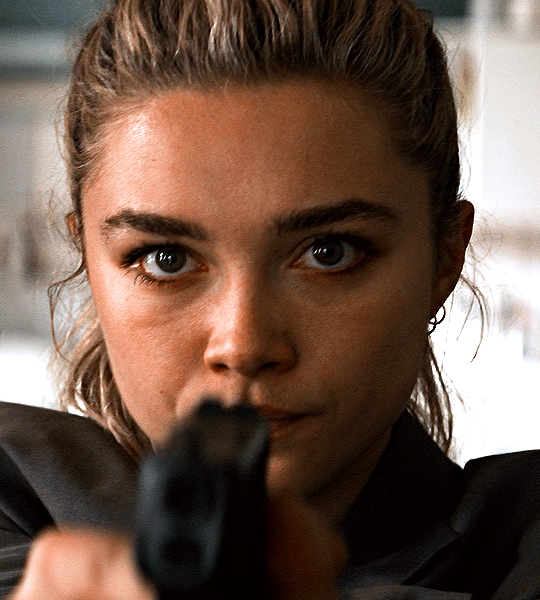
Florence Pugh As Isabella Dillion (Co-Lead/ younger sister to Mark)


Chris Pine As Morpheus Paxton (Main Antagonist/ Bounty Hunter/ Sociopathic Weapon Specialist)

Dan Stevens As Samuel Wayne (Head of the CIA and tragically murdered)

Aldis Hodge As Karl Norris (Co-Worker in the CIA)
My inkitt name is PeterA17 so that way you can check out my story, I worked very hard on this spy thriller and I hope you all have a great rest of your day.
1 note
·
View note
Text
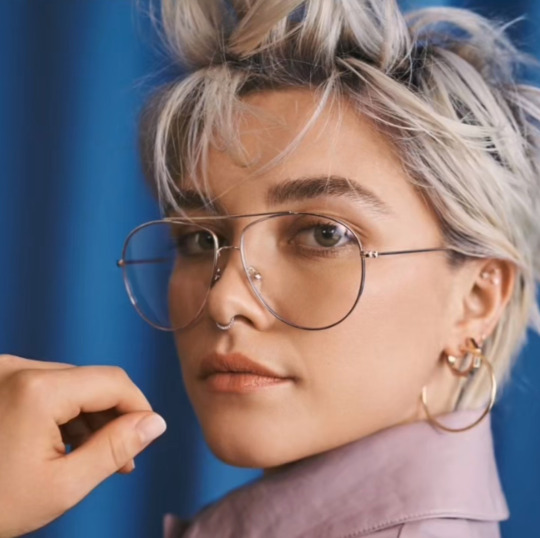
this photo has me in a mfkin chokehold - cannot breath, am having heart palpitations 😩😩🦋🦋
14 notes
·
View notes
Text
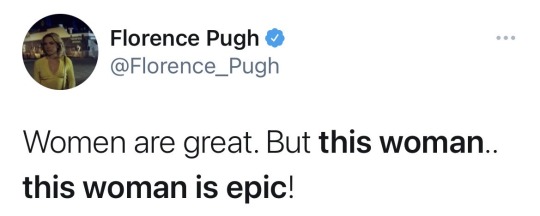

24 notes
·
View notes
Text
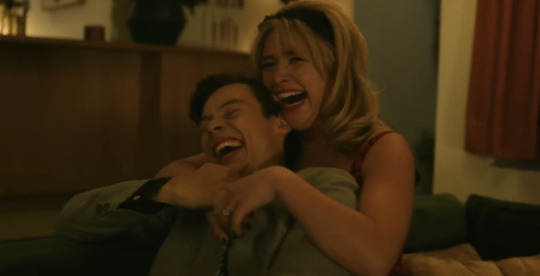
AHHHHH!!!!!!!!!!
Trailer out!! Proud mama <3
Don’t worry darling. September 23
#don’t worry darling#florence pugh#olivia wilde#harry styles supremacy#harry styles tpwk#as it was#hs3#domrry#harry styles#harryshome#hs#harrys house#film#in theatres#harry styles smut#thriller#this is the cutest thing ever#screaming#crying#throwing up
11 notes
·
View notes
Note

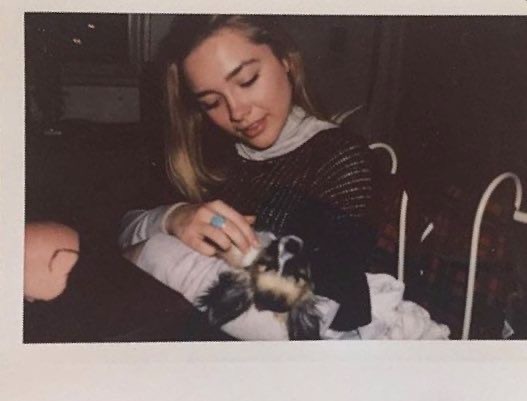
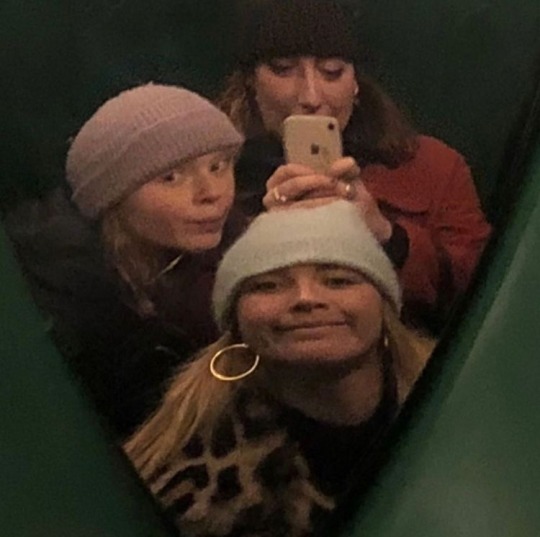
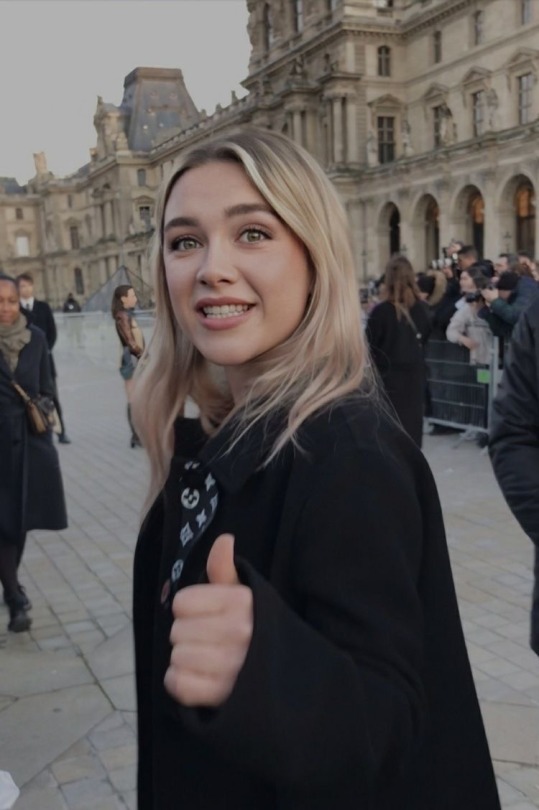
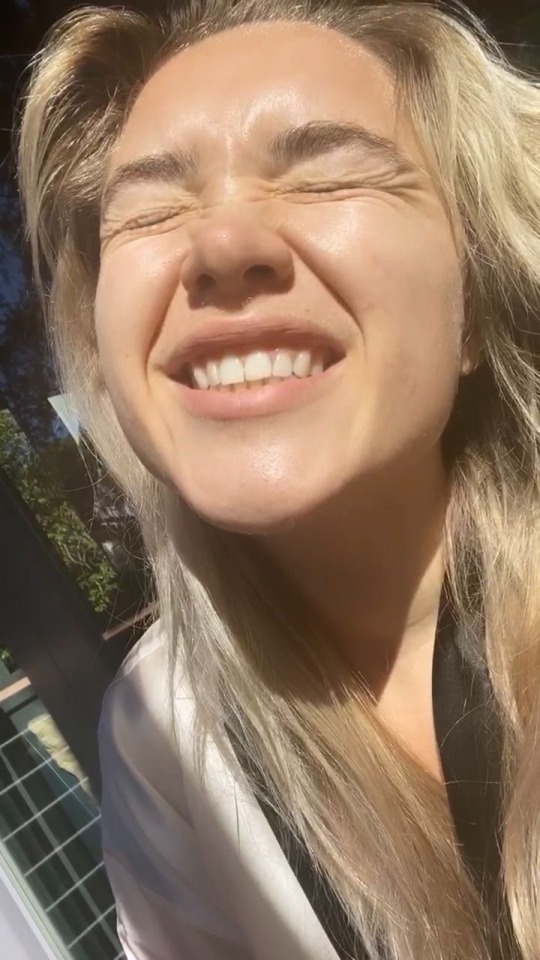

Hey homieeeee here’s some pics of flo :)
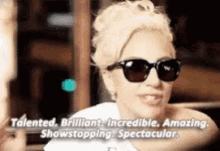

ty homie doing some blessed work out here lol
17 notes
·
View notes
Text
YELENA BELOVA??
More like
YELENA MY BELOVED!!!
#yelena owns my heart#yelena belova#yelena black widow#white widow#black widow movie#the black widow#marvels black widow#marvel#florence pugh#flo#Florence pugh supremacy#yelena belova supremacy
5 notes
·
View notes